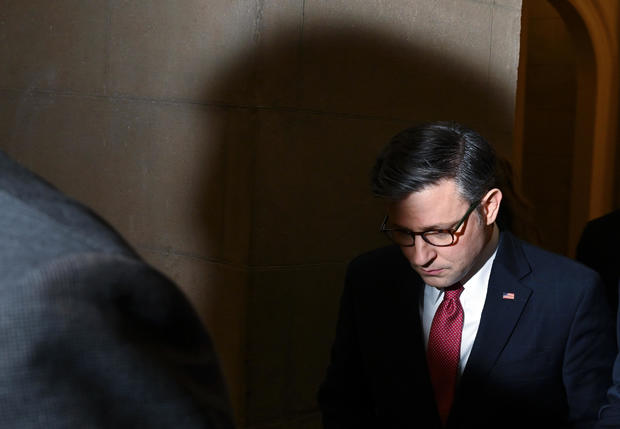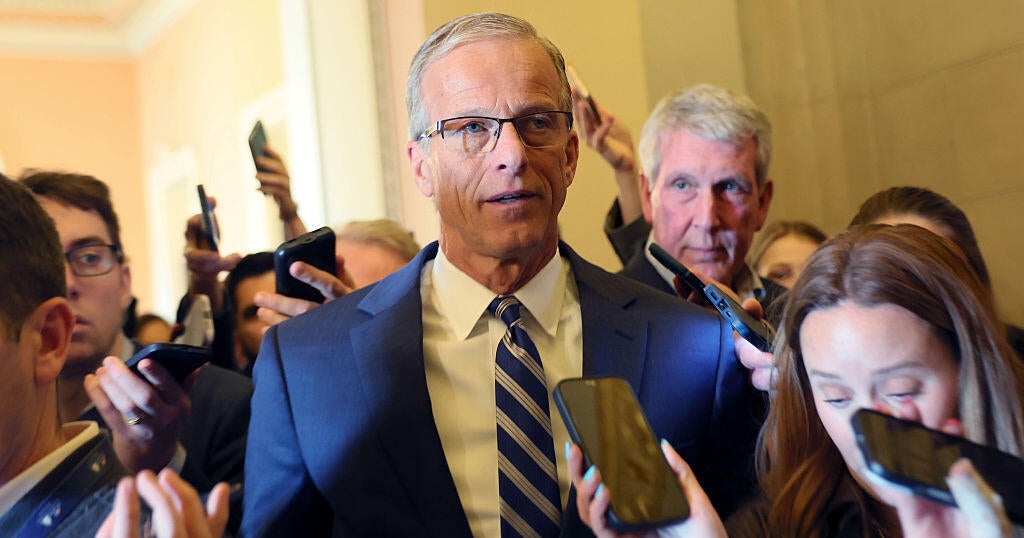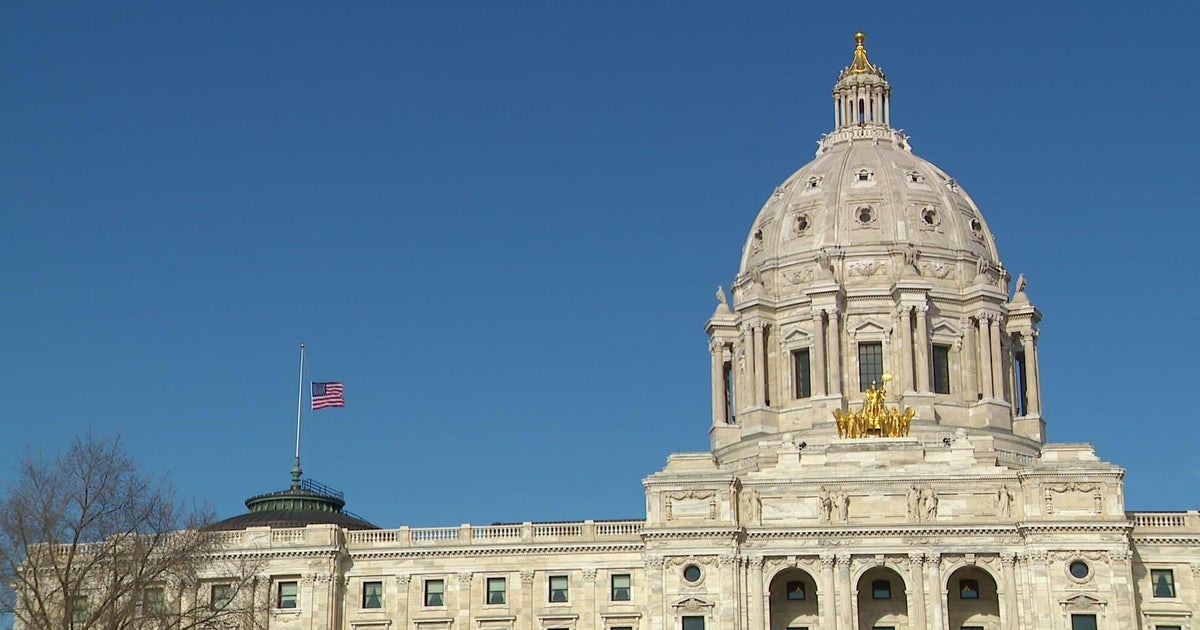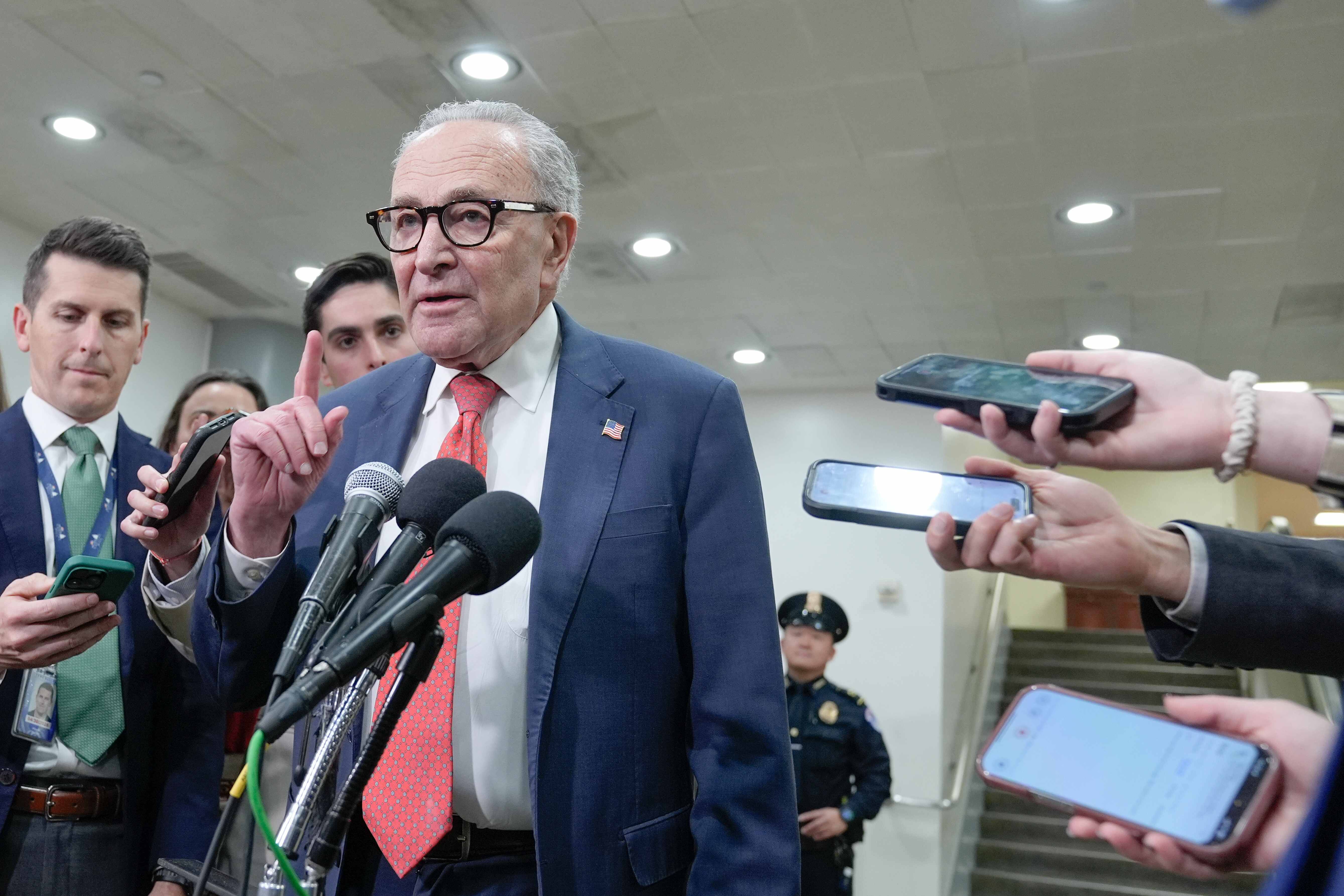Government shutdown threat returns as Congress wraps up recess
Washington — When lawmakers return to Washington next week, they'll have less than a week to pass a bill to fund the government and avert a partial government shutdown after March 1. And a slew of setbacks in recent weeks suggests the odds of a shutdown are at least even.
Tensions remain high in Congress after the Senate passed a foreign aid bill that Speaker Mike Johnson has so far refused to bring up for a vote in the House. Lawmakers in both chambers have clamored for a path forward on aid to Ukraine as conditions become more dire, while some are eager to address border security, too. But a solution has remained out of reach as Republicans in both chambers struggle to find a version of the legislation they can back.
After leaving town for the Presidents Day recesses without a clear path forward on either government funding or the supplemental Ukraine and Israel aid measure, the House and Senate are set to return to Capitol Hill next week. Lawmakers will have just three days when both chambers are in session to approve the first four appropriations bills to prevent a partial shutdown after March 1. The second deadline will land a week later, on March 8, after which funding for the bulk of government agencies is set to expire.
"I think the odds [of a shutdown] are 50-50 at this point," Rep. Patrick McHenry, a North Carolina Republican who served as speaker pro tempore during the speaker election last year, told CBS News' "The Takeout" podcast.
The deadlines come months into the fiscal year, after lawmakers have already had to rely on three funding patches to keep the government operating. After pushing the deadline off in September, and then again in November, lawmakers extended funding once more in January. With the short-term continuing resolution, they set up a two-step deadline to fund the government.
The move aims to divide work on the 12 individual spending bills to avoid a massive omnibus bill to fund the government, which has become the norm in recent years. According to the Pew Research Center, Congress hasn't passed more than five of its 12 appropriations bills on time since 1996, opting almost every year for continuing resolutions and ultimately omnibus packages to get the government funding over the finish line.
Despite the quick turnaround that's required, Senate Majority Leader Chuck Schumer seemed hopeful when the upper chamber left town that lawmakers would be able to stave off a shutdown.
"There's broad support in the Senate — and I believe in the House, where we worked with Speaker Johnson on the last bill — to not shut down the government and fund things," Schumer told reporters last week, saying he's "very optimistic" that they can get the funding work done in time.
The government funding feud so far
The issue of government funding for fiscal year 2024 has widened fractures within the House GOP conference since debt ceiling talks last summer, when the White House and House Republicans under former Speaker Kevin McCarthy's leadership agreed to spending levels. But when McCarthy backed off of that agreement amid pressure from his conference's right flank shortly after, the House and Senate were at odds over how to proceed.
House conservatives pushed for funding levels well below the agreed-upon threshold, which complicated the path forward for McCarthy. His handling of the shutdown threat — moving a last-minute stopgap measure to fund the government and avert a funding lapse — cost him the speaker's gavel. For Johnson, who was the fourth choice of Republicans to be the next speaker, navigating the funding process has been treacherous, as he's worked to maneuver a razor-thin GOP majority in the chamber.
In early January, after months of the standoff over topline spending numbers, House and Senate leaders announced they had reached an overarching agreement on government funding. The $1.66 trillion deal is generally in line with what McCarthy and the White House agreed to months earlier. At the time, Johnson acknowledged that the agreement "will not satisfy everyone," because it doesn't "cut as much spending as many of us would like," but he touted it as the "most favorable budget agreement Republicans have achieved in over a decade."
Lingering disagreements
Despite the agreement, exactly how the two chambers will proceed remains to be seen. And some Republicans are still expected to oppose efforts to fund the government without spending cuts or significant policy riders that Democrats will find unacceptable.
For months, conservatives have pushed for policy riders related to abortion and border security to be embedded within the funding legislation. And some hardliners have also advocated for passing a continuing resolution through April, which would result in 1% across-the-board spending cuts under the agreement made during the debt ceiling talks. The automatic cuts were put in place to incentivize Congress to approve the funding bills for federal agencies in a timely manner.
In a letter to Johnson on Wednesday seeking an update on funding negotiations, conservatives in the House Freedom Caucus suggested that if they don't get the policy riders they're seeking, they would opt to pass a year-long continuing resolution that would result in the across-the-board cuts that others in Congress dread.
Still, the two chambers appear to be trying to get the spending bills finished without relying on another stopgap measure, however unlikely, as the political will for another short-term solution wears thin.
Rep. Tom Emmer of Minnesota, the No. 3 House Republican, told Bloomberg last week that "you're not going to get another continuing resolution out of our conference in Congress," noting that the last stopgap measure was "difficult" but became necessary since there wasn't enough time to clear the spending bills after the chambers had agreed to the topline figures. Emmer noted that the chambers may rely on "minibuses," or groups of the 12 spending bills, to fund the government in time.
Getting anything passed by the House has proven to be a difficult task in recent months, with the sharply divided GOP majority in the chamber. Johnson is likely to be forced to move the spending bills under suspension of the rules — a maneuver that requires the help of Democrats, since passage would require the backing of two thirds of the House.
The maneuver has become a vehicle for bipartisanship recently as a small group on the GOP's right flank threatens to hold up must-pass legislation, even on routine procedural votes. Rather than contend with the unruly faction, House leadership has opted to hold some votes under suspension of the rules.
Doing so is not without its risks, however, since a similar move seemed to precipitate McCarthy's ouster last year.
How Johnson approaches the impasse will be watched closely. The same rule that led to McCarthy's removal remains in place — it takes just one lawmaker to move to oust the speaker. And while House conservatives appeared willing to grant Johnson a grace period after he took the gavel amid earlier iterations of the funding fight, that may not hold going forward.
"It is a real and legitimate fear because the last guy was taken out," McHenry said.




